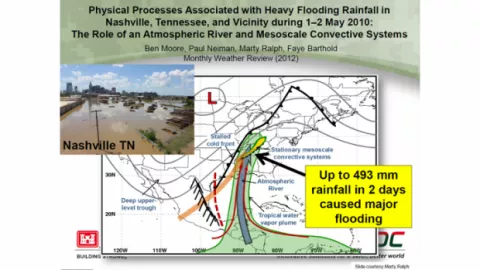
Nashville accelerates delivery of services to its residents
One of the ways Nashville is delivering services to its residents is by participating in the Smart Cities Council Readiness Challenge. To participate, a city must have leadership commitment and agree to commit the time necessary to listen, question and plan. In this case, Nashville has done this superbly well.
This article explains the process. This article provides the details about Nashville's goals in mitigating the impact of urban flooding. Nashville and the Smart Cities Council will be publishing a Smart City Activator Roadmap to mitigate urban fooding that any city in the world can use for free
What you can do?
- Subscribe to our newsletter (see top right corner [don't use Safari]) to get notified when we publish the Roadmap.
- If you want to register to attend the continuing Nashville sessions we will hold in 2021 - go here.
- If you are a city (anywhere in the world,) apply to our 2021 2nd Quarter Readiness Challenge open as of February 1, here.
Follow our progress
Here are the results - session by session with the following stakeholders participating
- Nashville city leaders, including Mayor Cooper
- Experts from Vanderbilt University and Georgia Tech
- Flooding mitigation experts from the Town of Cary, NC and Cleveland (NEORSD)
- Sensor experts from the Department of Homeland Security, US Government
- Solution providers including HiFy, Green Stream Technologies, Intellisense, Ott Hydro, Acquaris Software and SaS Institute
First Session Nashville Mitigating the Impact of Urban Flooding (10/20/20)
Nashville Mayor John Cooper explains Nashville's goals in mitigating the impact of urban flooding. Roger Lindsey, Floodplain Manager/Stormwater Design Review at Metro Nashville Water Services, Jennifer Higgs, GIS Lead Architect and Tom Palko, Deputy Director of Water Division, discuss Nashville's efforts at predicting and measuring urban flooding with an overview of census and flood data.
Second Session Nashville Mitigating the Impact of Urban Flooding (11/18/20)
Lucy Kempf, Executive Director Metro Nashville Planning Dept, and Faye DiMassimo FAICP, Senior Advisor to the Mayor, Metropolitan Government of Nashville and Davidson County discuss Nashville's vision for urban planning and using 'equity in design' - an innovative approach that benchmarks every project for outcomes for vulnerable populations.
Third Session Nashville Mitigation of Urban Flooding (11/24/20)
Dr. David Alexander from Department of Homeland Security, US Government - resilience and technology for mitigating the impact of urban flooding.
Dr. Russell Clark, Senior Research Scientist, Computer Science - Georgia Tech - A high-density deployment of smart sea level sensors to provide hyper-local, real-time water level data for Savannah, GA.
Fourth Session Nashville Mitigating the Impact of Urban Flooding (12/2/20)
Presentations about using sensors, IT architecture and analytics by North East Ohio Regional Sewer District (Cleveland) and the Town of Cary, NC. The Town of Cary, NC presentation includes a very valuable data architecture diagram.
Fifth Session Nashville Mitigation of Urban Flooding (12/9/20)
Using sensors and edge devices to mitigate the impact of urban flooding. Review of low cost sensors from solution providers. See and download presentations below from HiFy, Green Stream Technologies and Intellisense and Charlotte Low Cost Sensor Installation Guide as part of Dept. of Homeland Security funded pilot.
Sixth Session Nashville Mitigation of Urban Flooding (12/16/20)
Solutions for data sharing and modeling with focus on predictive analytics with presentations from Ott Hydro, Acquaris Software and SAS Institute.
Seventh Session Nashville Mitigation of Urban Flooding (3/25/21)
Xylem introduces solutions for water quality and flood management. Also introduces the Water Equity Lens, a data driven approach to resolving equitable access to water.



